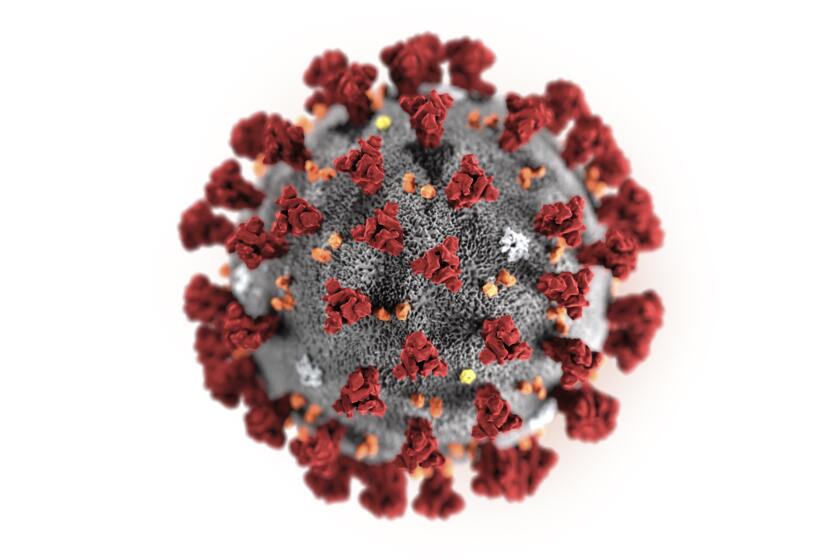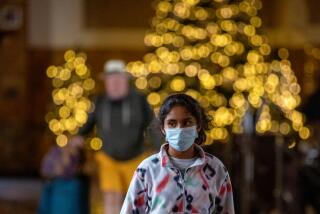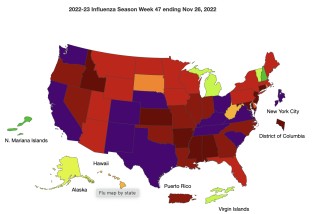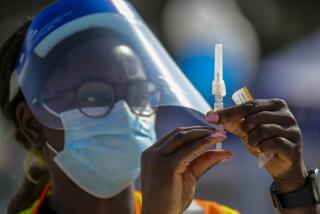A coronavirus danger: Touching your face. Here is how to stop doing it

- Share via
We all touch our face. With this new coronavirus outbreak, how do we stop?
Touching our faces is a real health risk. So in this new world, not only is nose picking thought to be gross, but so is nose scratching, mouth touching and eye rubbing. All it takes is just one virus to hitch a ride on a contaminated finger and slip into the body through a nostril or a wet part of the face.
Then the virus can latch on, finding a human cell in the throat, nose or sinuses to hijack and destroy it, flooding the body with even more copies of itself. In critical illnesses, that one careless touch from an unwashed finger can begin a process of destroying lungs and kidneys and, in a worst-case scenario, trigger septic shock, multiple organ failure and make it impossible to breathe on your own.
And yet. It’s still so, so hard to stop touching our faces. Much of time it’s spontaneous, and we aren’t even aware of it. One study caught medical students in class touching their faces 23 times per hour on average.
“It’s human nature to want to touch your face,” said Dr. Otto Yang, an infectious diseases expert at UCLA.
There’s a reason for that.
The new coronavirus spreading rapidly around the globe can be deadly because it targets a very vulnerable and essential part of the body — the lungs.
Touching our faces may actually be related to negative feelings — a feeling when we’ve failed to achieve a goal or aren’t satisfied, according to a research article published in the journal PLoS One.
Face touching can help us deal with anxiety and discomfort, and may be comforting, the report said. We might think we want to touch our faces because of a perceived itch or to groom ourselves, but research suggests we’re actually doing it because we’re somehow uneasy or unsettled, according to research described in the study.

Touching our faces is also thought to be a way we might try to avoid being distracted. In a study of face touching, researchers concocted ways of trying to distract study participants during a difficult mental task, and found that the human test subjects increasingly touched their faces when their attention was distracted and they needed to refocus.
Unfortunately, the things we touch the most often can often be filthy. Such as our beloved smartphones. Which we probably touch as soon as we wash our hands.
Colonies of bacteria were discovered on the vast majority of healthcare workers’ cellphones in one study; 93% of the phones studied were found to be crawling with germs. Most non-healthcare workers’ phones were also dirty, with 58% of them home to microbes, said the study, published in the Iranian Journal of Microbiology.
“Mobile phones are not only capable of transferring messages but also are disease-producing microbes,” the study said.

While many people fear being sneezed or coughed on, there’s plenty of convincing evidence that shows just how easy it is for a virus to enter through face touching.
Some viruses can survive for days on hard surfaces, just waiting to be picked up by a new fingertip. One study in the Journal of Hospital Infection found flu virus persisting on hard surfaces in flu patients’ hospital rooms. The virus was found on a computer mouse, bed rail, wall, sofa and clothes. (In one case, the virus survived on a surface even after the room was cleaned and left empty for 72 hours before it was tested.)
Viruses are also common in daycare centers. One study found more than half of tested surfaces were contaminated with flu virus; another said “respiratory viruses were omnipresent ... especially on the toys.”
When it comes to the coronavirus outbreak, no one can predict the future. But experts look to pandemics of the past for hints about what’s to come.
Sometimes, it may not be the droplets in the sneezes and coughs that are most infectious. Instead, the virus is in the snot, and the infected mucus is probably what helps it spread from person to person, and hand to hand, according to a number of studies.
And those seeking safety in masks should realize that they don’t keep you from touching your face.
Surgical masks don’t cover the eyes. And people wearing masks can sometimes get an itch on their nose, and if they rub their nose through their mask, they’re likely to rub their eyes, said Dr. James Cherry, a UCLA infectious diseases expert.
“Viruses are very happy infecting through the eyes as well as through nose and mouth,” Cherry said.
So what can people do to break the habit?
It’s not going to be easy, and some of these ideas will probably sound weird. Nonetheless, people have kicked other habits commonly now seen as gross.
- Start being mindful when you do touch your face, catching yourself when — and, preferably, before — you do it.
- If you catch yourself before touching your face, consider folding your hands or doing something else with them, suggests one skin beauty care website.
- Got an itch? Try to ignore it. If that’s bothersome, wash your hands, then scratch it, then wash your hands again. Or buy sterile wooden tongue depressors to use as a tool to scratch itches.
- Perhaps consider wearing gloves. The latest food safety gloves can also be used on smartphone screens, and gloves might make you more conscious about touching your face.
- Don’t get discouraged if it seems hard to learn how to not touch your face.
“Politicians, for example, learn through extensive training to restrain from touching their face during public speaking,” said Martin Grunwald, author of a book on face touching, “Homo hapticus,” and an expert on the subject at the University of Leipzig in Germany. He also co-wrote the study published in PLoS One on face touching. Still, “this behavior requires extreme self-control and is extremely trying.”
There are worrying implications for the shortage on some goods caused by coronavirus fears, including masks.
Of course, keeping your hands clean is essential. Hand-washing with soap and water for 20 seconds is effective at killing germs. Hand sanitizer with at least 60% alcohol can be effective in killing some viruses, including the new coronavirus, but can be ineffective with other viruses, UCLA’s Yang said. Bleach-based wipes work to clean surfaces.
And wipe down your phone! Some say bleach wipes are safe for phones; others recommend a mix of water and 70% isopropyl alcohol.
There is a bright spot for those who can master a touchless lifestyle.
There was a “substantially lower risk of community-acquired influenza infection” for people in the Chinese province of Fujian who often washed their hands, rarely touched their face and received the annual flu shot, according to a study published in the journal Medicine.
Most of the flu transmission analyzed in that study was probably caused by touching contaminated surfaces and putting dirty fingertips in their mouth, nose or eyes, the authors said.
More to Read
Sign up for Essential California
The most important California stories and recommendations in your inbox every morning.
You may occasionally receive promotional content from the Los Angeles Times.













